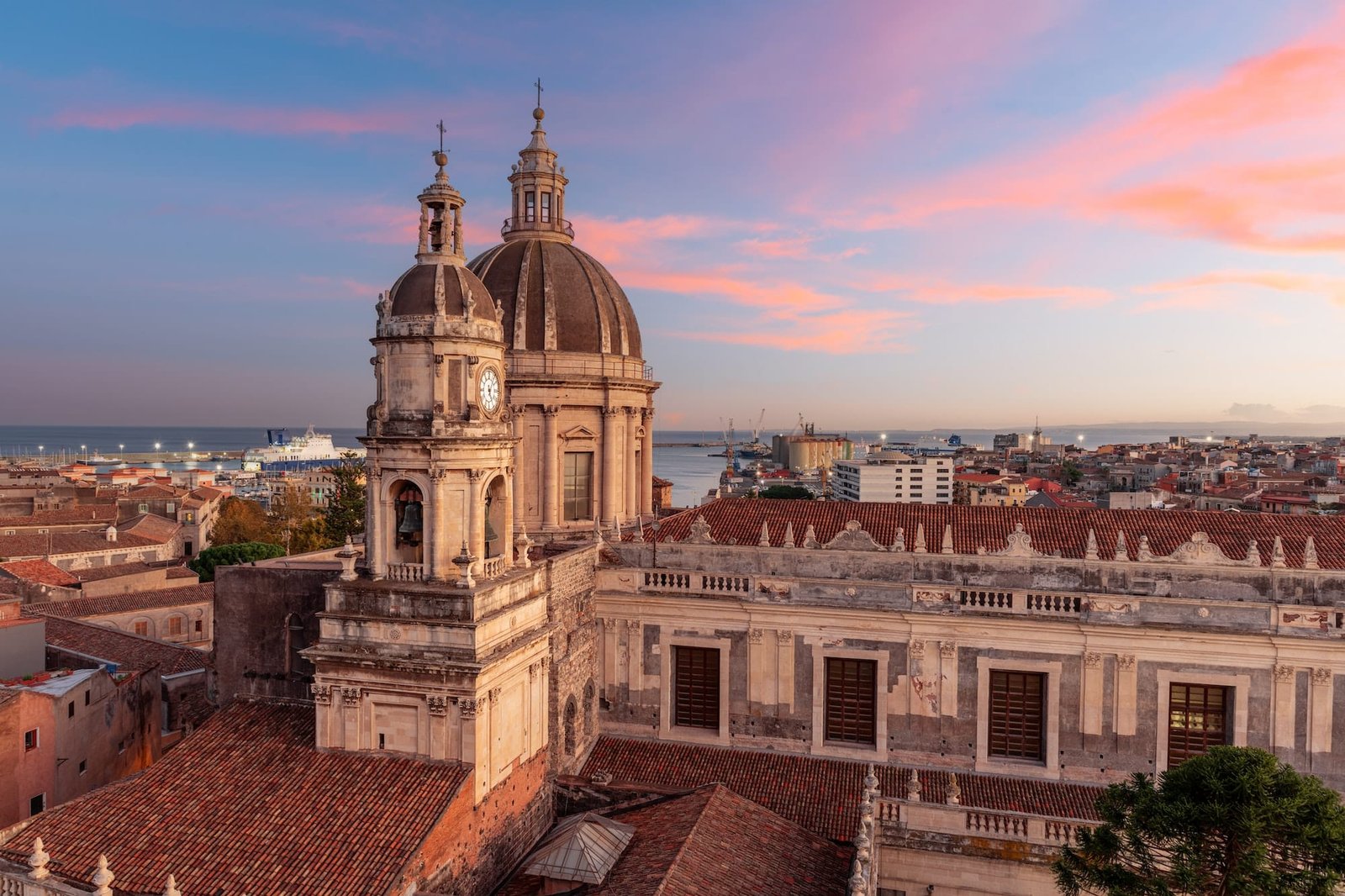Italy Golden Visa Cost: Understanding The Expenses Involved

Are you dreaming of living La Dolce Vita in Italy? Well, the good news is that your dreams could become a reality with the Italy Golden Visa! But before you start packing your bags and booking your flights, it’s important to understand the expenses involved.
In this blog, we’ll explore the Italy Golden Visa Cost and give you all the information you need to make an informed decision. So sit back, relax, and let’s dive into the world of Italian immigration!
Overview Of Expenses For The Italy Golden Visa
Obtaining an Italy Golden Visa is a fantastic opportunity for individuals seeking to live, work, or study in this beautiful country. However, like any visa application process, there are expenses involved that need careful consideration.
First and foremost, it’s essential to meet the financial requirements set by the Italian government. As of 2021, applicants must have a minimum net worth of €2 million to be eligible for the visa program. Additionally, they must invest in Italian assets such as real estate or government bonds.
Real estate investment is one of the most popular routes chosen by applicants. To qualify for an Italy Golden Visa through real estate investment, you must purchase property worth at least €500,000 in designated areas or €250,000 in smaller towns and rural regions.
Apart from real estate investment costs, it’s important not to overlook administrative fees and professional charges during your application process. These can include legal representation fees and consultancy services provided by experts familiar with immigration laws and procedures.
Other potential costs that should be considered include document translation fees (if applicable) and travel expenses related to visiting Italy for biometric data collection appointments or interviews at consulates abroad.
It’s also crucial to consider any tax implications that may arise from obtaining an Italy Golden Visa. While non-residents are generally only taxed on their income generated within Italy, it is advisable to seek advice from taxation professionals who specialise in cross-border transactions before making any financial decisions.
Financial Requirements For The Italy Golden Visa
Individuals must demonstrate a minimum annual income or net worth to qualify for an Italy Golden Visa. The exact amount varies depending on family size and location in Italy. It is important to consult with immigration experts or legal professionals to determine the specific financial requirements applicable to your situation.
In addition to demonstrating the required income or net worth, applicants must make a qualifying investment in Italian assets. This can include investments in real estate, government bonds, Italian companies, or venture capital funds.
The investment amount depends on the type of investment chosen but generally ranges from €250,000 to €1 million. It’s crucial to carefully evaluate your options and choose an investment strategy that aligns with your financial goals and risk tolerance.
Furthermore, it’s essential to consider these initial costs and account for ongoing expenses such as taxes, insurance fees, property management fees if investing in real estate, and any other associated costs related to maintaining your residency status in Italy.
Navigating through all the financial requirements can be complex without professional guidance. Therefore it’s advisable to seek assistance from experienced consultants who specialise in immigration matters specifically related to obtaining an Italy Golden Visa.
Real Estate Investment Costs For An Italy Golden Visa
One of the key requirements for obtaining an Italy Golden Visa is making a real estate investment. This can be an exciting prospect, as it not only allows you to secure your visa but also allows you to own property in one of the most beautiful countries in the world.
The cost of real estate investments can vary greatly depending on various factors such as location, size, and property condition. In general, however, you should expect to invest at least 250,000 euros in residential properties outside major cities or 500,000 euros within major cities.
In addition to the purchase price of the property itself, there are other costs associated with buying real estate in Italy. These include fees for lawyers or notaries handling the legal aspects of your purchases, taxes and registration fees. These costs can add up significantly, so it’s crucial to factor them into your budget when considering a real estate investment for your Italy Golden Visa application.
Administrative Costs and Professional Fees
When applying for an Italy Golden Visa, it’s important to consider the administrative costs and professional fees that may be involved. These expenses are separate from the financial requirements and real estate investment costs but are equally important to consider.
The administrative costs typically include application fees, processing fees, and other charges related to obtaining the visa. These fees can vary depending on your circumstances and the type of visa you’re applying for. It’s always a good idea to consult with an immigration lawyer or consultant who can guide you through the process and clarify these costs.
Other Costs to Remember
When applying for an Italy Golden Visa, it’s important to consider the financial requirements and real estate investment costs and other expenses that may arise throughout the process.
One of the significant expenses to keep in mind is the application fee. This fee covers processing your visa application and can range from a few hundred euros up to several thousand euros.
Another cost that often accompanies a Golden Visa application is legal fees. Hiring an immigration lawyer or consultant specialising in this area can ensure you navigate through all the necessary paperwork correctly.
Translation services might also be required if any documents need to be translated into Italian as part of your visa application. These costs could add up depending on how many documents need translating and their complexity.
Additionally, it’s important not to overlook travel expenses when applying for an Italy Golden Visa. You may need to make multiple trips between your home country and Italy for meetings with lawyers or government officials related to your visa application.
While not directly tied to obtaining a Golden Visa, it’s worth mentioning potential ongoing costs once you have successfully obtained your visa. These could include property maintenance fees if you’ve invested in real estate, insurance premiums for coverage during your stay in Italy, and general living expenses such as accommodation rentals and utilities.
Potential Tax Implications For Obtaining An Italy Golden Visa
While this visa program does not require applicants to pay income tax in Italy, some other taxes and fees should be considered. One important aspect to consider is property tax. If you choose to invest in real estate as part of your visa application, you will be responsible for paying property taxes on the purchased property, which generally range from 0.4% to 1% of the cadastral value.
Additionally, if you rent out your investment property, rental income will be subject to taxation in Italy. The specific tax rates depend on various factors, such as annual rental income and expenses incurred during the rental period.
Another consideration is wealth tax or “Imposta sul Patrimonio.” This tax applies to individuals with a net worth exceeding €1 million and ranges from 0.2% to 0.76%, depending on different thresholds.
Navigating these potential tax implications can be challenging without professional advice from a qualified accountant or tax advisor specialising in international matters. Consulting with experts will help ensure compliance with Italian regulations while minimising any unnecessary financial burdens associated with obtaining an Italy Golden Visa.
Conclusion
The Italy Golden Visa offers a fantastic opportunity for individuals and families looking to invest in Italy and gain residency in this beautiful country. However, it’s important to understand the costs involved before deciding.
The overall cost of obtaining an Italy Golden Visa includes financial requirements, real estate investment costs, administrative fees, professional fees, and potential tax implications. It’s crucial to consider all these expenses and plan your budget accordingly.
While each applicant’s situation may vary based on their specific needs and preferences, understanding the typical expenses can help you make a more informed decision.
Remember that the cost of obtaining an Italy Golden Visa involves not just monetary investments but time and effort. The application process can be complex, so seeking guidance from experienced professionals is highly recommended.
Good luck as you explore new opportunities in beautiful Italy!
Was this article helpful? Let us know in the comments.




